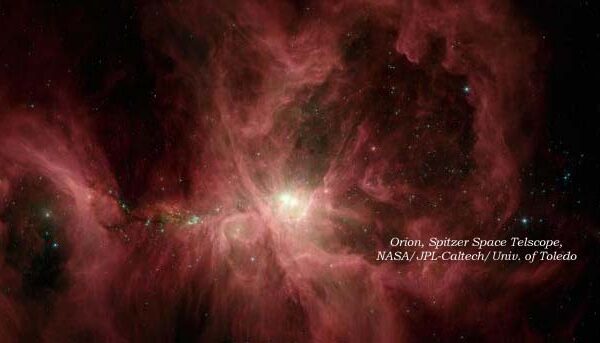Originally published June 5, 2013
Where the Conflict Really Lies by Alvin Plantinga, available in hard cover for around $25.00
Some time ago I decided that I would make it a goal to “go back to school.” This time I intend to study in a subject area that I never had time for while I was building a career in accounting and business management. I intend to study philosophy. I find the subject of thinking on how we think wonderfully absorbing. Part of that wonder is how we view the universe and how much we are only now beginning to understand. Consequently, when I run across someone who seems to think that the word “lobotomy” and the word “theist” are interchangeable; well, I find it odd. Depending on the circumstances I may even consider it amusing.
Recently I was watching the series, Stephen Hawking’s Universe. There is a segment in one of the episodes where the work of Monsignor George Lemaitre is discussed. If you do not recognize the name, Monsignor Lemaitre was the first astronomer and physicist to postulate the “primeval atom.” (Hoyle’s Big Bang). Another physicist had a similar idea based on Einstein’s relativity equations, but it was Lemaitre that realized what the actual proof of his theory would be. He was, basically, looking for Hubble’s results. He was an avid proponent of the theory of an expanding universe and argued long and hard with such luminaries as Einstein against the steady state universe. He made sure he was present at the Mount Wilson observatory to discuss Hubble’s new findings about the expanding universe while Einstein was there. The Catholic official now responsible for caring for Lemaitre’s papers and research said something I found much to my own liking. There are two ways for science and religion to have a conversation. One is sitting at the table together and attempt to talk, in which case the conversation usually degenerates. The other is for the religious to simply do good science.
And they have. There is much ink spilled on the controversy between Galileo and the church. The church had accepted the views of an ancient Greek as interpretation of scripture. You may have heard of Ptolemy. However, Galileo was a devote Catholic and his faith was not shaken by his great discoveries. Kepler, Newton, Einstein, and many, many others had no issue being theists of one brand or another and still have the drive to know all they could know about the universe in which we live. Many of the men of science that did so much to build the foundations of what we know today were in pursuit of what they saw as the mind of God. This tradition is still going on. There will always be those who choose to be willfully blind, whatever their world view may be. In Plantinga I found a kindred spirit and a thinker that was perfectly comfortable in a universe where arduous scientific investigation can co-exist with a belief in some form of a “Prime Mover.” Plantinga writes from the world view of a Christian.
Where the Conflict Realty Lies develops Plantinga’s position that there is only superficial conflict between science and religion, but very deep conflict between science and naturalism. He has no beef with evolution; only unguided evolution. His philosophical point of view is that it is very difficult to build a case that purely random, natural selection would select for a reasoning, rational mind. If the whole focus of evolution is survival and the propagation of the species, then what purpose does the development of mathematics, physics, set theory, and other abstract thoughts serve which are so fundamental to advanced sciences today? Where does Bach and Mozart come in? What survival instinct do the arts protect and preserve? Evolution based purely on natural selection is not forward looking, it does not anticipate need; it reacts to current changes and accidents of mutation. Even using the proven theories of adaptability (a change in a complex organism becomes permanent because it can be adapted to other uses) does not completely explain the human drive to explore, to build, …to think.
Then there is the question of why we should come to believe that our cognitive faculties are reliable? Just because we can train an animal to respond in a certain way given certain cues, what gives the sentient human being that extra push to “seek that which is true?” What helps us sort through what to believe as true? I know the scientist will say that it is experience and experiment. We can duplicate circumstances and we KNOW this to be true. However, sometimes we find out we didn’t have the whole picture. And sometimes the only proof is what we can deduce and calculate that appears to successfully predict future outcomes. I believe without hesitation that stars explode and in the process create the elements of which we are made. I have not seen it happen. I do not have a nuclear lab in my basement. I know this to be true because I have seen the work of others (at least that part I understand) and that interpretation appears to fit what I know of the universe. It does not impair my belief. My belief makes my knowledge of these things all that more alive and gives the experience of learning a deeper richness.
Although there is a bit of probability mathematics here and there, Pantinga’s book is written for the serious layperson. The thinker that wants to understand a bit more about what the argument really is. It provides a basis for the thought process that accepts those things which have strong scientific support, but still looks further to test and stretch that knowledge. It is the kind of conversation that allows a person to question points that are unresolved without being accused of refuting the whole field of inquiry. Perhaps, in the end, Lemaitre’s admirer and curator is right. The best way to have the conversation is for the theist to do good science.
Plantinga presents a strong case that allows the theist to sit down comfortably with the scientist and to mutually discover the wonders of this amazing universe.
Author’s note. Since completing this post some years ago, I have spent a lot of time learning about a number of scientific wonders, including evolution. The mathematics do work, once you know that each time a path is chosen, future choices become more limited. Could evolution result in a sentient being? Oh, I most certainly believe so. Especially since we are still working on the definition of sentient and have learned much from our feathered and furry co-habitants.



No Comments